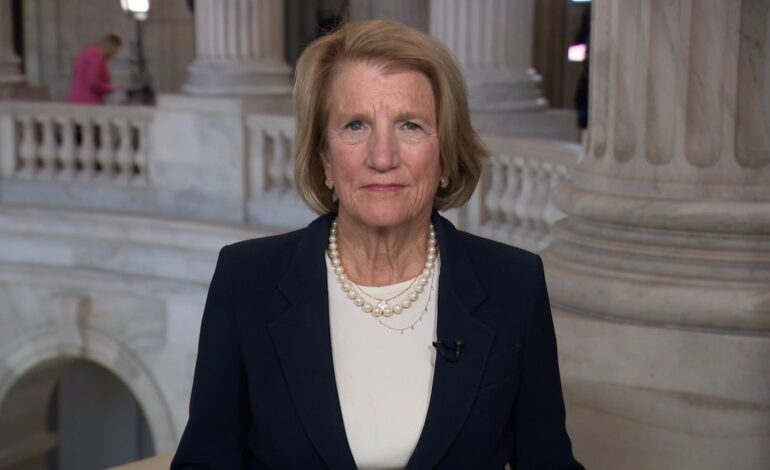GOP Senators Resist Abolishing Filibuster Amid Shutdown Crisis

The ongoing government shutdown is prompting intense discussions among Republican senators, particularly regarding the future of the filibuster. Representative Marjorie Taylor Greene has called for the abolition of the filibuster to facilitate government funding, but some senators are firmly opposed to this idea. One prominent voice against the proposal is Senator Shelley Moore Capito from West Virginia, who expressed her concerns during an interview with CNN’s Dana Bash.
In the interview conducted on September 29, 2023, Senator Capito emphasized the potential long-term consequences of removing the filibuster. “It sounds like an easy fix, but we’re talking about setting generations of policy and good policy and minority rights aside,” she stated on the program Inside Politics. Her remarks highlight a significant divide within the Republican Party regarding strategies to resolve the funding deadlock.
As the government shutdown enters its ninth day, the pressure is mounting on lawmakers to reach a consensus. The shutdown has already begun to affect various government services and programs, causing frustration among constituents. Senator Capito’s stance reflects a broader concern among several GOP senators who fear that abolishing the filibuster could undermine the legislative process.
The filibuster has long been a tool used by minority parties in the Senate to block legislation. Its proponents argue that it serves as an essential mechanism to ensure that all voices are heard in the legislative process. Critics, however, contend that it often leads to gridlock and hinders timely action on critical issues, such as government funding.
Republican leaders face a challenging balancing act as they navigate this contentious issue. While some, like Greene, advocate for bold action to end the impasse, others like Capito caution against measures that might have lasting repercussions on Senate operations. The decision on whether to maintain or abolish the filibuster could have profound implications for future governance and party dynamics.
As discussions continue, the path forward remains uncertain. Republican senators must weigh their options carefully, considering both immediate needs and the potential impact on long-term legislative practices. The outcome of these deliberations could shape the future of governance in the United States for years to come.






